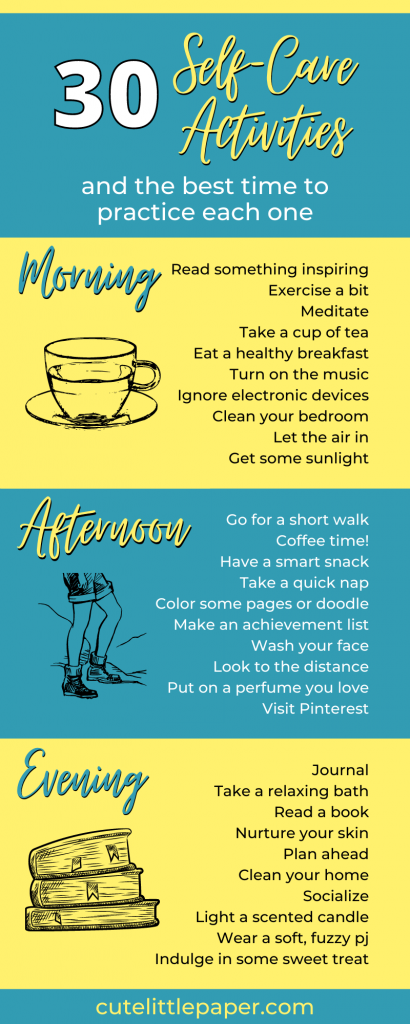Self-care is more than a buzzword—it’s the intentional practice of looking after your mental, emotional, and physical health. Whether you’re sipping tea in the quiet morning hours or journaling before bed, self-care routines can help you feel balanced, recharged, and resilient in the face of daily stress. But a common question arises: Should you focus on morning self-care or night self-care? Which one is more effective?
The answer isn’t one-size-fits-all. Both morning and night routines bring unique benefits, and the “best” one depends largely on your lifestyle, goals, and personality. In this article, we’ll break down the differences, benefits, and drawbacks of morning vs. night self-care routines—and help you decide which one fits your life best.
The Importance of a Self-Care Routine
Before diving into the comparison, it’s important to understand why routines matter. Self-care isn’t about indulgence—it’s about consistency and intentionality. When you commit to certain rituals every day, you signal to yourself that your well-being matters. Over time, these small, repeated actions build resilience, reduce stress, and improve your overall quality of life.
Morning and evening routines serve as bookends to your day, shaping how you start and how you end. Think of them as anchors: mornings set the tone, while evenings provide closure.
Morning Self-Care Routines
Benefits of Morning Routines
- Set a Positive Tone for the Day
Starting your morning with mindfulness or gentle movement can influence your mood and mindset for the entire day. - Boosts Productivity
Practices like journaling, meditation, or exercise in the morning can sharpen focus and prepare you for challenges ahead. - Fewer Distractions
Early hours are often quieter, giving you uninterrupted time for yourself before the demands of work or family kick in. - Supports Physical Energy
Activities like stretching, walking, or yoga can increase blood flow and leave you feeling more energized.
Examples of Morning Self-Care Activities
- Drinking a glass of water upon waking to rehydrate.
- Mindful breathing or a 5-minute meditation.
- Light exercise or yoga.
- Gratitude journaling.
- Preparing a nourishing breakfast.
- Setting daily intentions.
Drawbacks of Morning Routines
- Not ideal for night owls who struggle to wake up early.
- Can feel rushed if you have an early job or family responsibilities.
- Skipping it due to lack of time can lead to guilt.
Night Self-Care Routines
Benefits of Night Routines
- Encourages Restful Sleep
Evening rituals help signal to your body that it’s time to wind down, improving the quality of your sleep. - Emotional Processing
Reflecting on your day through journaling or quiet activities can help reduce stress and prevent overthinking at bedtime. - Digital Detox Opportunity
Disconnecting from screens in the evening gives your mind a break from constant stimulation. - Stress Relief
Practices like taking a warm bath, stretching, or reading can reduce cortisol (the stress hormone) before sleep.
Examples of Night Self-Care Activities
- A warm shower or bath to relax muscles.
- Writing down three highlights of the day.
- Gentle stretching or restorative yoga.
- Herbal tea or warm milk.
- Skincare routine as a mindful ritual.
- Switching off devices at least 30 minutes before bed.
Drawbacks of Night Routines
- Can be skipped due to exhaustion.
- Requires discipline to resist late-night distractions (social media, TV).
- If sleep patterns are irregular, it may be harder to establish consistency.
Morning vs. Night: Which One Works Best?
The truth is, there’s no universal winner—it depends on what you need most.
- Choose Morning Routines If:
- You want to start the day with energy and focus.
- You’re aiming for productivity and goal-setting.
- You thrive in quiet, early hours.
- Choose Night Routines If:
- You struggle with sleep quality and stress relief.
- You want to end your day with reflection and calm.
- Evenings are when you finally have time for yourself.
Some people even benefit from a hybrid approach: a short, energizing morning routine and a calming night routine. For instance, 10 minutes of meditation in the morning and journaling before bed can balance both ends of the day without overwhelming your schedule.
Tips for Building the Best Routine for You
- Start Small
Don’t overwhelm yourself with a long checklist. Begin with one or two rituals and expand gradually. - Listen to Your Body
If mornings feel rushed, shift your self-care to evenings. If you’re too tired at night, mornings may work better. - Prioritize Consistency
Even five minutes daily is better than sporadic hour-long sessions. - Mix and Match
Experiment with both morning and night routines to find a balance that works for your lifestyle. - Protect Your Time
Treat your self-care as a non-negotiable appointment with yourself.
Final Thoughts
So, which is better—morning or night self-care routines? The answer depends on your personal needs, energy levels, and goals. Morning routines are great for boosting productivity and setting a positive tone, while night routines shine in promoting relaxation, better sleep, and emotional release.
In reality, both are valuable. The most effective approach is the one you can consistently stick to—whether that’s greeting the sunrise with gratitude or winding down the night with reflection. The key isn’t when you practice self-care, but that you practice it at all.
At the end of the day (or the beginning), what matters most is that you carve out intentional time to nurture yourself—because self-care is not a luxury, it’s a necessity.
